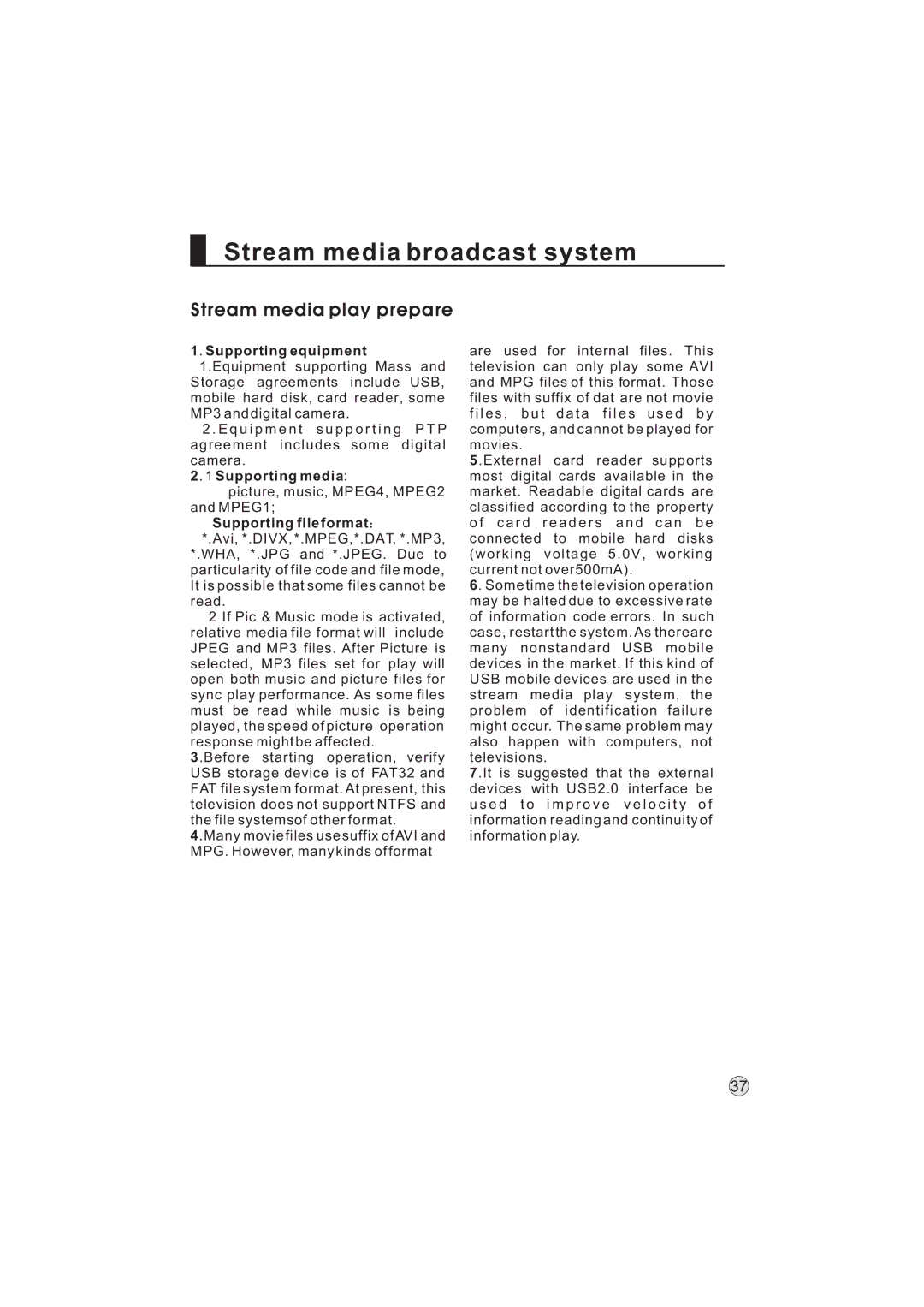
Stream media broadcast system
Stream media play prepare
1. Supporting equipment 1.Equipment supporting Mass and
Storage agreements include USB, mobile hard disk, card reader, some MP3 and digital camera.
2 . E q u i p m e n t s u p p o r t i n g P T P agreement includes some digital camera.
2. 1 Supporting media:
picture, music, MPEG4, MPEG2 and MPEG1;
Supporting file format
*.Avi, *.DIVX, *.MPEG,*.DAT, *.MP3, *.WHA, *.JPG and *.JPEG. Due to particularity of file code and file mode, It is possible that some files cannot be read.
2 If Pic & Music mode is activated, relative media file format will include JPEG and MP3 files. After Picture is selected, MP3 files set for play will open both music and picture files for sync play performance. As some files must be read while music is being played, the speed of picture operation response might be affected.
3.Before starting operation, verify USB storage device is of FAT32 and FAT file system format. At present, this television does not support NTFS and the file systemsof other format.
4.Many movie files use suffix ofAVI and MPG. However, many kinds of format
are used for internal files. This television can only play some AVI and MPG files of this format. Those files with suffix of dat are not movie f i l e s , b u t d a t a f i l e s u s e d b y computers, and cannot be played for movies.
5.External card reader supports most digital cards available in the market. Readable digital cards are classified according to the property o f c a r d r e a d e r s a n d c a n b e connected to mobile hard disks (working voltage 5.0V, working current not over500mA).
6. Some time the television operation may be halted due to excessive rate of information code errors. In such case, restart the system. As thereare many nonstandard USB mobile devices in the market. If this kind of USB mobile devices are used in the stream media play system, the problem of identification failure might occur. The same problem may also happen with computers, not televisions.
7.It is suggested that the external devices with USB2.0 interface be u s e d t o i m p r o v e v e l o c i t y o f information reading and continuity of information play.
37
